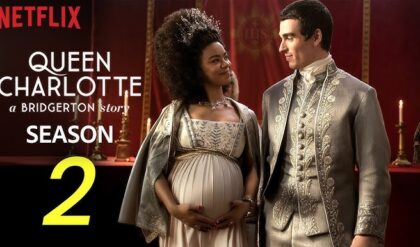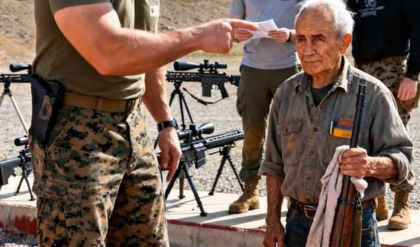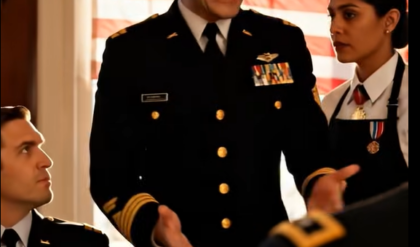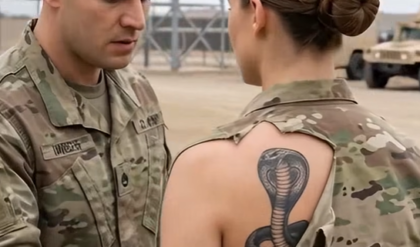Forget about zombies; “The Walking Dead” franchise reminds us that humans are the real monsters. That moral argument is also at the forefront of the latest spin-off series, “The Walking Dead: The Ones Who Live,” which re-establishes the Civic Republic Military (CRM) as a serious threat. However, it’s also more complicated than a simple battle between right and wrong.
The CRM is an ever-present menace throughout the “Walking Dead” franchise. The military and law enforcement body pretends to have humanity’s best interests at heart, though its history of slaughtering communities and people who show strong leadership skills says otherwise. Is the group a necessary evil, or is it out of control and beyond saving?
Despite its history of questionable actions, “The Ones Who Live” hints at a long-term future for the CRM that could present the organization in a new light. Still, one shouldn’t overlook the possibility of the group becoming more unhinged, as the latest spin-off also highlights its more disturbing mechanisms. With that in mind, let’s examine the CRM’s history and discuss everything we know about its plans.
What is the CRM?
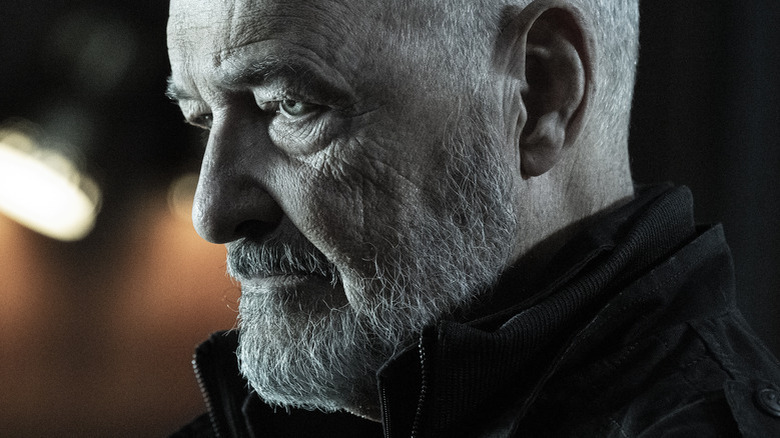
The Civic Republic Military is a Philadelphia-based group that debuted on “The Walking Dead.” Since then, the military organization has appeared in other shows set in this universe, but the soldiers have primarily operated in the shadows, keeping their disturbing secrets hidden from the wider world. Figures such as the familiar-looking Major General Beale (Terry O’Quinn) have orchestrated said atrocities, and he’s much more intimidating than flesh-eating fiends.
As the name indicates, the group represents the Civic Republic, a community encompassing over 200,000 members. It’s arguably the most powerful corner of this universe, as evidenced by its access to medicine, resources, and powerful weapons. However, while the community provides sanctuary to some citizens, its military ensures they can’t leave. Furthermore, being dubbed an “A” citizen — someone with strong leadership skills — mostly leads to death for the person in question.
Interestingly, the CRM doesn’t feature in the original “Walking Dead” comics. Perhaps this is why its story hasn’t been told in great detail throughout the television franchise — until now. “The Walking Dead: The Ones Who Live” delves deeper into the army’s authoritarian culture and illustrates how menacing its soldiers are. At the same time, they do show some slight signs of getting better.
The Ones Who Live puts the CRM at the forefront
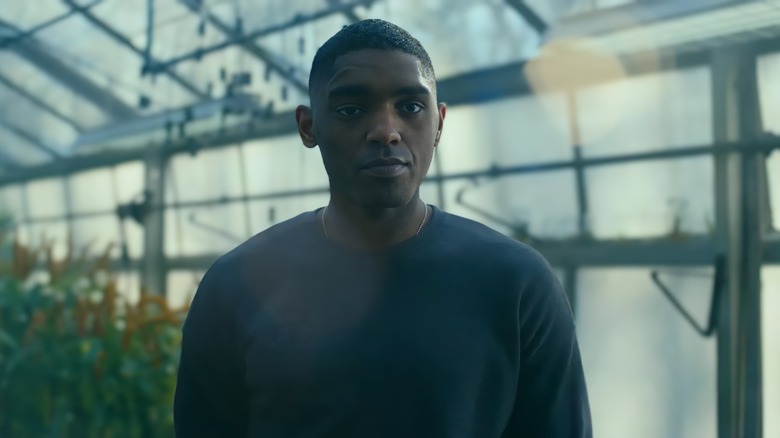
Until now, the Civic Republic Military has primarily functioned as an elusive entity, but viewers are finally learning what makes its figureheads tick. Now that Rick Grimes (Andrew Lincoln) is a member, there’s a hero on the inside who could incite some real change. But will it ever happen?
The now-deceased Lieutenant Colonel Okafor (Craig Tate) convinces the organization to take a chance on Rick as he thinks his leadership skills will benefit the group, hopefully leading to a less corrupt future. Usually, the troops would just off a guy like Rick, but Okafor thinks they should change their ways for the good of the CRM. Okafor even tasks Rick and Pearl Thorne (Lesley-Ann Brandt) with rising the ranks and accessing a secret document called The Echelon Briefing. Thorne has since learned all about it, but she keeps her lips sealed around Rick. For now, she seems on board with preserving the status quo, whereas Rick is arguably the CRM’s only real hope for freedom and a better tomorrow.
As it stands, the CRM is still authoritarian, corrupt, and militaristic. However, Okafor’s initiative suggests a desire to improve the organization from the inside. Sure, he’s dead now, but others will share his beliefs. Still, Rome wasn’t built in a day, and the CRM has committed enough atrocities to indicate that some members are just bad news.
Why the CRM is dangerous
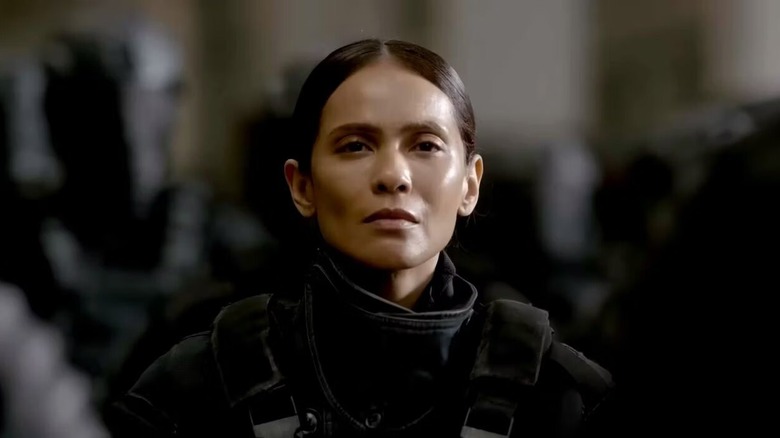
Rick and Michonne (Danai Gurira) shine on “The Walking Dead: The Ones Who Live,” but their reunion highlights the CRM’s wickedness. It should have been a heartwarming moment that led to them trying to escape and restart their family. Instead, Michonne’s presence reminds us that trying to make a getaway will lead to them and everyone they hold dear being killed, a sentiment Jadis (Pollyanna McIntosh) clarifies in Season 1.
The CRM has a zero-tolerance policy for walking out on them, but killing escapees is arguably the least severe of its crimes against humanity. The group has wiped out entire communities before, most notably on “The Walking Dead: Worlds Beyond,” when the Campus Colony was eradicated with chlorine gas. Talk about having innocent people’s best interests at heart, right?
While the group aims to eliminate the zombies and restore humanity, it also believes in population control and destroying anyone who might be considered a threat to its interests. That’s why it might be up to Rick to stick around and change the organization from within.
What is the CRM’s ultimate goal?
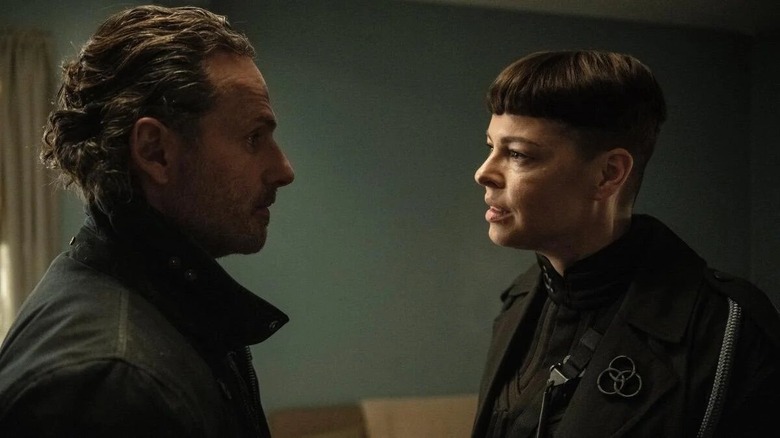
“The Walking Dead: The Ones Who Live” Season 1, Episode 3 reveals that the Civic Republic Military has a 500-year plan. In short, the goal is to find a cure for the Wildfire virus that turns people into zombies and make the world safe for humans again. It’s a noble idea in theory, but the organization in its current form might run Earth like a dictatorship if the plan comes to fruition.
Of course, this plan also gives AMC the option to continue making series set in this universe, which is an opportunity to tell stories about Rick — and potentially others — initiating changes within the CRM that will portray the organization as a more humane force. “The Walking Dead” franchise is known for its time jumps, and this story beat opens the door for new shows set further in the future.
It remains to be seen if the plan will come to fruition and whether Rick will help initiate it as a permanent member of the CRM. That said, “The Ones Who Live” certainly teases the possibility of the organization continuing to play an essential part in the franchise’s future — and that could be worse than a zombie apocalypse for humanity.
